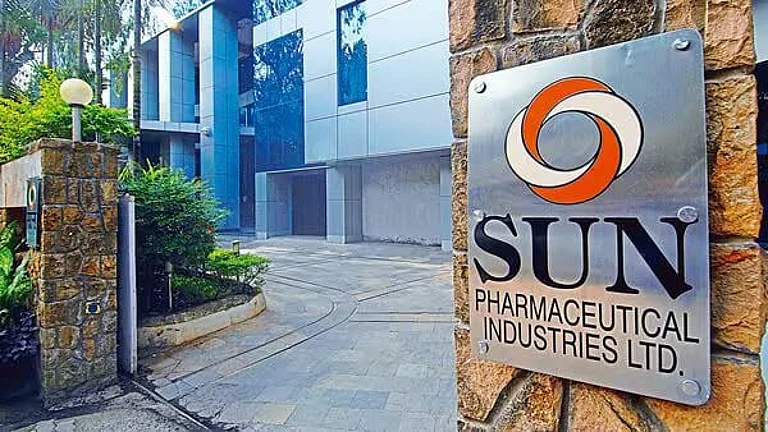Glenmark Pharma may have just given a makeover to how Indian pharma innovation is viewed and valued at the global stage. The company’s Swiss-based arm, IGI Therapeutics SA inked a milestone global licensing pact with US drug innovator AbbVie for its investigational cancer drug.
The deal, a first of such a scale by an Indian biotech major, centers on IGI Therapeutics’ investigational molecule ISB 2001, currently undergoing phase one trials. AbbVie is set to pay a $700-mln (Rs 6,000 crore) upfront payment, up to $1.2-bln in milestone payouts, and tiered double-digit royalties to IGI as part of the deal.
With this, Glenmark has not only unlocked an elixir of growth for the coming years, but also set a precedent on how Indian biotech firms can step up their drug innovations. Sham Chandak, head of institutional broking at Elios Financial Services sees the deal as encouraging news for other Indian drugmakers pursuing innovative research.
What’s the deal about?
Ichnos Glenmark Innovation (IGI), a subsidiary of Glenmark Pharmaceuticals focused on novel biologics, has signed a deal granting exclusive global rights to US-based AbbVie for its investigational cancer treatment, ISB 2001. Currently in Phase 1 clinical trials, the drug is being tested for use in patients with relapsed or refractory multiple myeloma—a complex and hard-to-treat form of blood cancer.
Under the agreement, AbbVie will take the lead in developing, manufacturing, and commercialising ISB 2001 across key markets including the US, Europe, Japan, and China. Meanwhile, Glenmark will retain commercial rights across emerging regions such as parts of Asia, Latin America, the Middle East, and Africa.
AbbVie is expected to drive the drug through Phase 2 and 3 trials, with regulatory filings potentially coming in four to five years, assuming clinical outcomes are positive. The deal positions both companies to tap into a growing global oncology market, while offering Glenmark a strong foothold in emerging economies.
What’s the Revenue Scope Like?
The licensing deal with AbbVie could turn out to be a goldmine, securing revenue for Glenmark Pharma for several years to come. The deal, on the face of it, is valued at around $2-bln, based on which, Shrikant Akolkar, pharma analyst at Nuvama Institutional Equities, estimates AbbVie’s expected peak sales for the drug to come around $3-5-bln.
Aside from the upfront payout for the deal, Glenmark also stands to benefit from double-digit royalty payments, if the drug manages to pass through human trials and get into commercialization.
As per back-of-the-envelope calculations, taking into assumption that Glenmark gets 10% of sales as royalty, Akolkar estimates a revenue potential of around $300-500-mln for the Indian drugmaker, already higher than its current annual Ebitda of around $283-mln.
Meanwhile, Bloomberg Intelligence estimates the global market for multiple myeloma therapies could reach $33-bln by 2030, further underlying the scale of this opportunity.
What Changes for Glenmark and Indian Pharma?
Akolkar also points towards a major push that the licensing deal with AbbVie may give to Glenmark. “Having cracked such a milestone deal with a major US drug innovator like AbbVie opens the doors for more such opportunities to come Glenmark’s way in the future,” he said.
The deal also marks a pivotal change in the world’s perception of the Indian biotech space. “Even though we have companies like Syngene that have innovated a few drug, development of fresh molecules haven’t penetrated into the Indian biotech space yet,” Akolkar said.
In that backdrop, he expects the deal to be a stepping stone for the Indian biotech industry, propelling a surge in drug development. “In a way, this will turn out to be the first of many yet to come,” Akolkar feels.
“Side-by-side, it will also provide IGI with a steady stream of revenue to further ramp up its research spends,” Chandak said.
The management also hinted towards similar plans, in its post-deal media briefing. As reported by Moneycontrol. IGI needs about $70 million annually for R&D over the next three years and plans to retain the upfront cash, pay a small dividend to Glenmark, and not deleverage materially, given the limited debt on its books, the company said at the media briefing.
Further adding to that, Chandak also pointed towards the deal opening up a possibility for Glenmark to take IGI into a public listing in the future, thereby unlocking value for its shareholders.
However, the management’s comments in the post-deal briefing signal no urgency on Glenmark’s front at taking IGI into an IPO even though it has previously hinted plans for the same to fund the subsidiary’s high R&D cash burn.
Looking ahead, all eyes are now on Glenmark’s upcoming analyst day scheduled for July 16, where investors are hoping to gain deeper insight into the AbbVie deal, the company’s long-term roadmap, and its evolving drug pipeline.
So far, the market has responded with palpable enthusiasm as shares of Glenmark have surged 20% over just two trading sessions, reflecting the scale of optimism this milestone licensing agreement has unlocked for the drugmaker’s growth prospects.


































